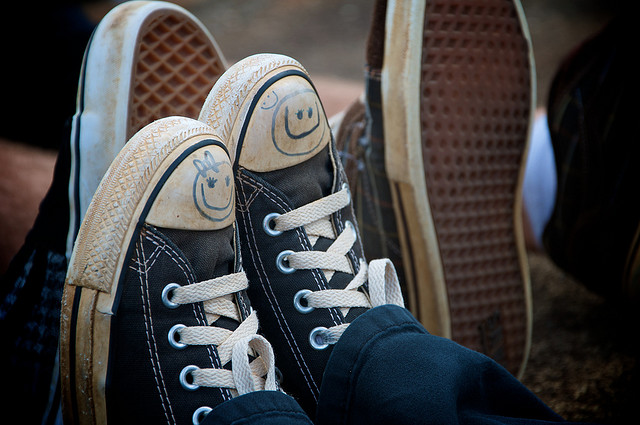
“Every one of us has the capacity of walking with the Buddha’s feet.” ~ Thich Nhat Hanh
I was first introduced to Kinhin—walking meditation—two years ago in Nepal.
I was at Kopan Monastery, outside Kathmandu, when a group of students caught my attention. They were taking extremely slow, small steps with utter mindfulness—I could feel the positivity radiating from each step.
Later that day, I learned that these students were practicing walking meditation. I tried to do it, but frankly, I felt like the whole process was too slow for me. I wasn’t ready for it.
But the universe kept reminding me of this profound practice. Last year while in India, I encountered monks who were practicing kinhin. I had just bought a book by Thich Nhat Hanh, and to my surprise, one section was dedicated to walking meditation.
I delved deeper into it and found that I was ready to practice as I had grown more calm in the past year.
Walking meditation clearly means practicing meditation while walking. According to Thich Nhat Hanh, walking like a free person (free from the past, future and strong emotions) is an astounding way of healing that brings about an abundance of joy and nourishment.
Guided by Thich Nhat Hanh, with a smile, we take one step while inhaling. We bring attention to the soles of our feet. When we have finished the first step, we exhale and take another step.
For every step we take to be mindful, we should challenge ourselves to concentrate. By investing 100 percent of our concentration in our body and mind, we can successfully take each step with mindfulness.
Thich Nhat Hanh says that we should touch the ground as if we are kissing the earth with our feet.
He also suggests a profound practice within walking meditation that can help us on a deeper level. When we take a step (breathing in), we may say, “I have arrived.” When we take another step (breathing out), we may continue, “I am home.”
Step and inhale.
“I have arrived.”
Step and exhale.
“I am home.”
I am home. I have arrived.
I’ve heard this before, but to be honest, I never really grasped its meaning. When I read Thich Nhat Hanh, I was astounded by its overwhelming power and connection to walking meditation.
“I am home. I have arrived” is not a statement or declaration. However, it is a realization that our true home isn’t a geographical place. Our true home is life, in the here and now.
It is the place in which we don’t seek, wish or regret. There is no past, no future. My home is the present moment and I have arrived.
By realizing this and stating it while practicing walking meditation, we learn that there is no destination in life. Every step that we take is the destination.
According to Thich Nhat Hanh, walking meditation can gift us with the following:
- When we walk with mindfulness, we radiate an energy of compassion and peace for animals, vegetation and rocks. In return, we receive this energy from the earth.
- We realize that walking on earth is a miracle. We find a sense of success and pride in having the chance to be alive and walk.
- We have the chance to be born again. One of the first things we learn as babies is how to walk; now we can take baby steps and learn to walk once more.
- Problems drop away while walking. With every step we take, we leave behind what is no longer serving us.
It hasn’t been long since I started practicing walking meditation, but I can already feel the benefits of this profound practice.
What’s beautiful about it is that we really don’t need to make time for it as it is accessible to us any time of the day. We can practice while walking from the bedroom to the kitchen or from the house to the car.
Let’s walk.
Let’s exchange energy with the earth.
Let’s appreciate the miracle of having two feet.
Author: Elyane Youssef
Image: JoePhilipson/Flickr
Editor: Nicole Cameron; Ashleigh Hitchcock








Read 0 comments and reply